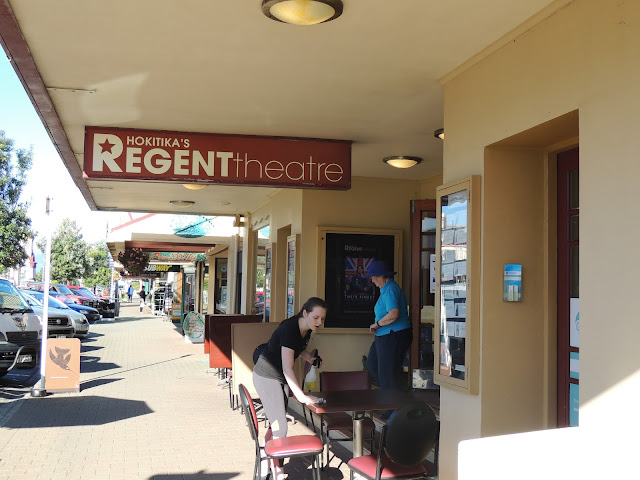Good morning, campers. It's a sterling blue day in Hokitika and before the day is out your correspondents will have fresh laundry and a larder full of groceries.
We also did some more nosing about town and the gorgeous coastline, the bane of ships gold miners who left claims in the east to travel via the Tasman Sea to Hokitika, where gold fever was hot. Trying to come ashore was perilous and in the year 1865 there was a shipwreck, collision, or grounding about every ten days. Most of the wrecks occurred at the entrance to the river, which because of its positioning forced ships to attempt entry nearly broadside to the sea.
At the height of the gold rushes in the 1860’s (Hoki) boasted 102 hotels.
Throw in three opera houses and a whole lot of gold miners and it must
have been a rip-roaring town.
Richard John Seddon, who represented Westland in Parliament from 1879 to 1906 and was NZ Prime Minister 1893-1906.
The Carnegie Building, now Hoki's museum
Here's a little Hokitika history (click here to see video if you're reading in email):
We stopped at a small gallery run by an affable German. This photo shows part of the Southern Alps from town on a clear day. With a focus on the water, it's easy to forget the massive spine of the alps to our west.
Mt Cook/Aoraki from the beach via a very long lens.
59F water didn't stop him
I couldn't really figure out what this man was selling and he was so peacefully napping I didn't have the heart to ask.
There's a wee cinema here, but the weather's too good to be inside.
Dinner tonight: gurnard in butter atop silverbeet (chard) and onions in a pinot noir saute. Plus the colorfuls. Tomorrow we'll head out to explore the local landscape.

















No comments:
Post a Comment